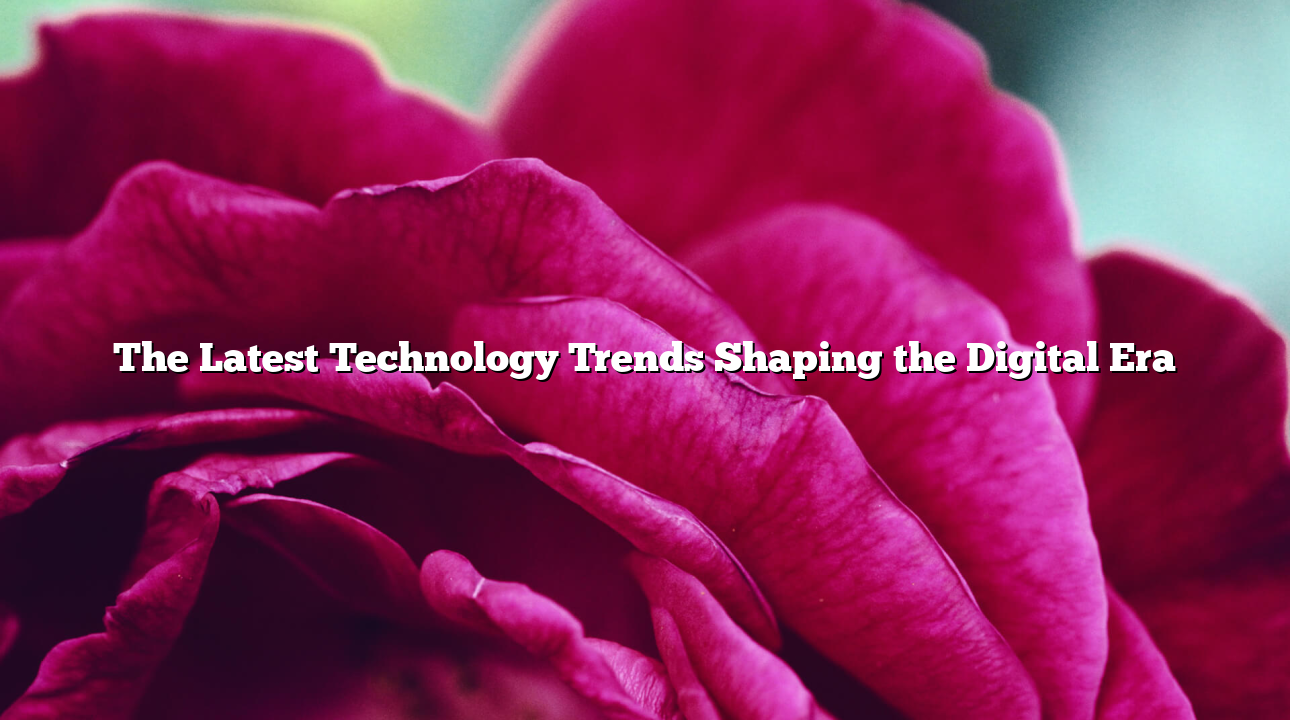Technology continues to evolve at an unprecedented pace, reshaping industries, economies, and societies around the world. The latest technological trends are not only transforming business operations but also changing how people live, work, and interact. From artificial intelligence to green innovation, these Tempur99 advancements are pushing humanity into a new phase of digital transformation.
One of the most influential trends today is artificial intelligence (AI). AI has moved far beyond basic automation, becoming a driving force in data analytics, healthcare, education, finance, and creative industries. The rise of generative AI, capable of producing text, images, and even code, has unlocked new possibilities for content creation and problem-solving. Businesses are increasingly integrating AI-powered tools to improve efficiency, personalize customer experiences, and gain insights from massive amounts of data. However, concerns about ethical use, bias, and job displacement remain ongoing challenges.
Closely related to AI is the rapid development of the Internet of Things (IoT). Everyday devices—from home appliances and wearable gadgets to industrial machinery—are now interconnected through the internet. This connectivity allows for real-time monitoring, predictive maintenance, and improved resource management. Smart homes and smart cities are prime examples of how IoT is shaping modern lifestyles. Yet, as more devices become connected, cybersecurity and data privacy risks are growing areas of concern that require stronger safeguards.
Another groundbreaking trend is the adoption of 5G technology. With its ultra-fast speed and low latency, 5G is enabling innovations such as autonomous vehicles, immersive augmented reality (AR) and virtual reality (VR) applications, and large-scale industrial automation. Beyond entertainment, 5G plays a critical role in advancing telemedicine, remote education, and global connectivity. This technology is laying the foundation for a fully digital ecosystem that will support future innovations.
Meanwhile, blockchain and Web3 technologies are gaining traction across various sectors. Initially associated with cryptocurrencies, blockchain is now being applied to supply chain management, identity verification, and digital contracts. The decentralized nature of Web3 promises greater transparency and user control over digital assets. Despite regulatory uncertainty and technical hurdles, these technologies are expected to redefine trust and ownership in the digital economy.
Sustainability is also becoming a core focus in the tech industry, with green technology emerging as a crucial trend. As climate change intensifies, companies are investing in renewable energy, carbon-neutral data centers, and energy-efficient hardware. Innovations such as advanced battery storage, electric mobility, and smart energy grids are helping reduce the environmental impact of digital growth. Green tech is not just a necessity but also an opportunity for businesses to align with global sustainability goals.
Finally, quantum computing stands out as one of the most promising, though still experimental, frontiers of technology. Unlike classical computers, quantum machines can perform calculations at speeds unimaginable with current systems. This breakthrough has the potential to revolutionize fields like drug discovery, cryptography, and scientific research. While large-scale adoption is still years away, progress in this area is being closely watched by governments and tech giants worldwide.
In conclusion, the latest technology trends highlight a future that is smarter, faster, and more interconnected. At the same time, they raise critical questions about ethics, regulation, and equitable access. The challenge ahead lies in ensuring that these technologies are developed responsibly and inclusively, so that innovation benefits not just a few but society as a whole.
